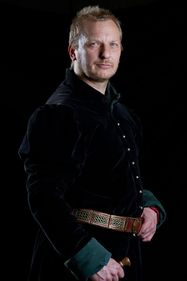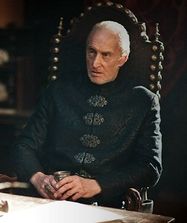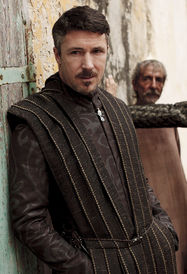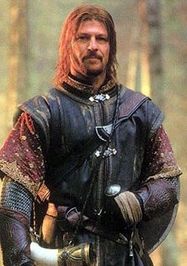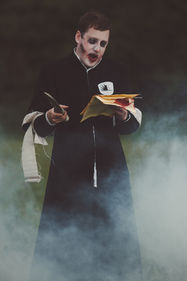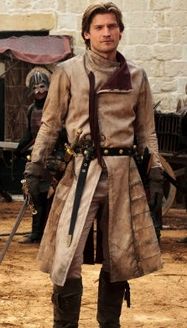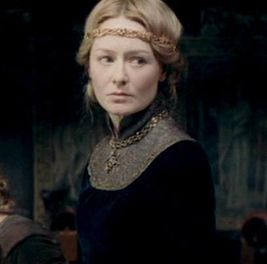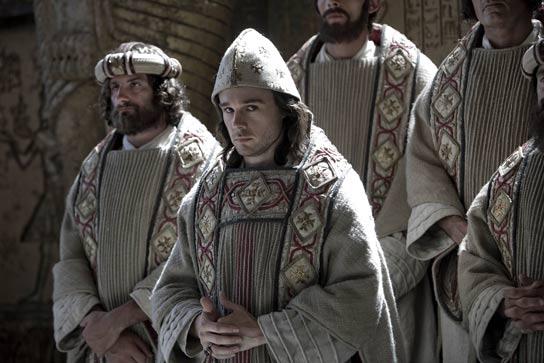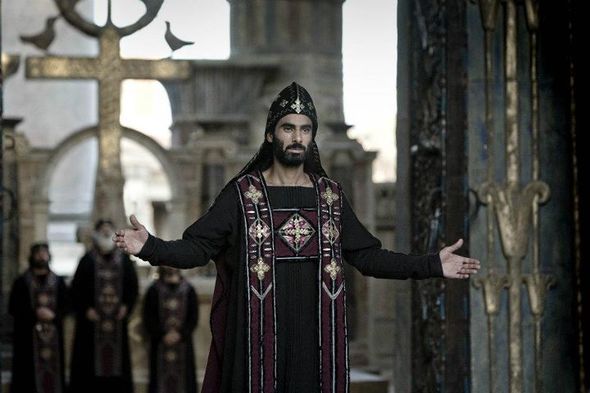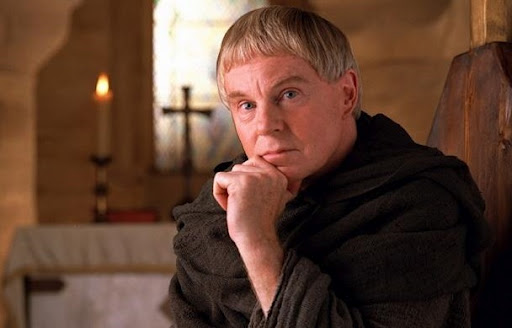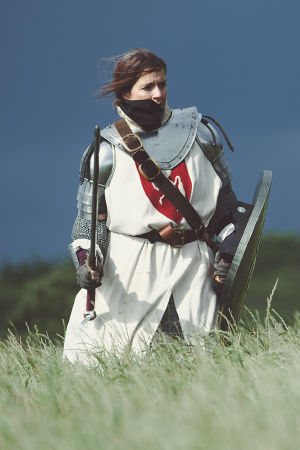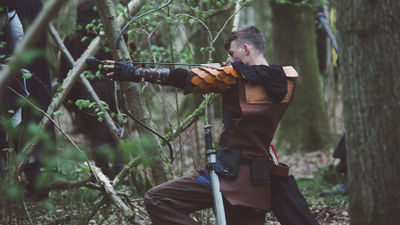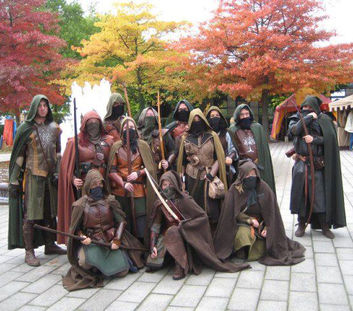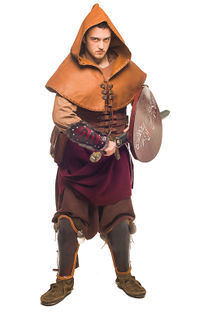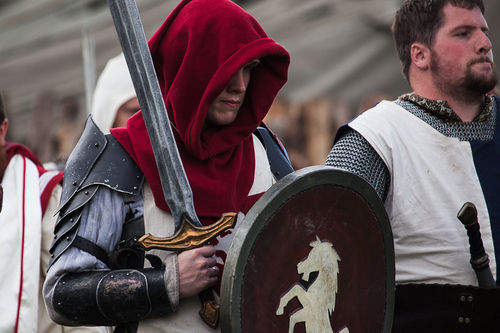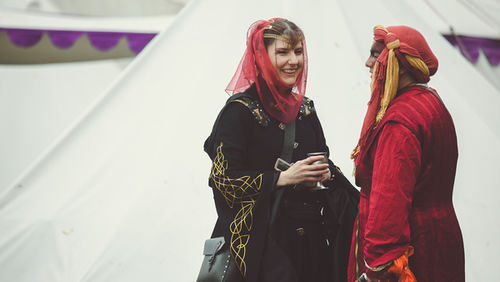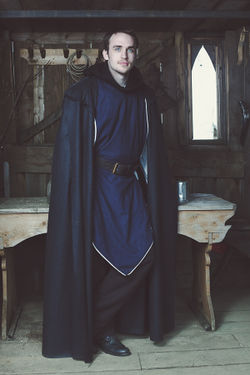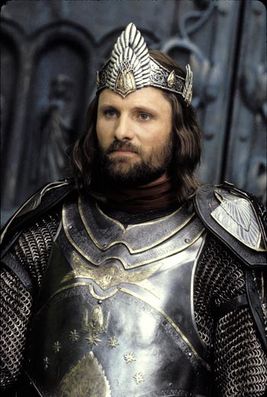Highguard costumes
No edit summary |
mNo edit summary |
||
| Line 110: | Line 110: | ||
[http://tutorials.abbott.me.uk/home/really-simple-costume-1 How to make a simple tabard]<br> | [http://tutorials.abbott.me.uk/home/really-simple-costume-1 How to make a simple tabard]<br> | ||
[http:// | [http://www.profounddecisions.co.uk/empire-wiki/How_To_-_Make_a_Surcote How to make a surcote - only slightly more difficult than a tabard, and much easier to wear. Also covers how to use Fusible Webbing to add a heraldic device to your garment]<br> | ||
[http://tutorials.abbott.me.uk/home/no-excuses Tutorial 3 on this link covers how to make a tunic and cape - by increasing the diameter of the cape you can make it a full or calf-length one]<br> | [http://tutorials.abbott.me.uk/home/no-excuses Tutorial 3 on this link covers how to make a tunic and cape - by increasing the diameter of the cape you can make it a full or calf-length one]<br> | ||
| Line 125: | Line 125: | ||
The base layer for the Unconquered is a knee-length tunic, either without armour or with lighter armour worn over it. A palette of neutral forest colours helps them scout and remain unseen when in the field, so choosing browns, greens and greys is in keeping with this. Less elaborate than many other Highguard costume, there is still a role for contrasting trim, particularly if the character is wearing their "special occasions" clothes. Adding a fur or fake fur mantle might add to the look - a cheap and cruelty-free way of adding fur trim to your costume is to get old fur coats from charity shops and cut them down - sometimes they also have 1940s style capelets which need very little alteration to be used as a shoulder piece. | The base layer for the Unconquered is a knee-length tunic, either without armour or with lighter armour worn over it. A palette of neutral forest colours helps them scout and remain unseen when in the field, so choosing browns, greens and greys is in keeping with this. Less elaborate than many other Highguard costume, there is still a role for contrasting trim, particularly if the character is wearing their "special occasions" clothes. Adding a fur or fake fur mantle might add to the look - a cheap and cruelty-free way of adding fur trim to your costume is to get old fur coats from charity shops and cut them down - sometimes they also have 1940s style capelets which need very little alteration to be used as a shoulder piece. | ||
[http:// | [http://www.profounddecisions.co.uk/empire-wiki/How_To_-_Make_a_T_-_Tunic How to make a tunic] | ||
[http://tutorials.abbott.me.uk/home/leather-scale-armour How to make leather scale armour the easy way!] | [http://tutorials.abbott.me.uk/home/leather-scale-armour How to make leather scale armour the easy way!] | ||
[http://tutorials.abbott.me.uk/home/hardened-leather-armour Body moulded hardened leather armour] | [http://tutorials.abbott.me.uk/home/hardened-leather-armour Body moulded hardened leather armour] | ||
Revision as of 15:48, 1 April 2017
Note: The tone and style of this page may need editing. All costume advice pages should be written in third person voice, using verbs that make clear that this page is advice, not direction.
Look and feel
The Highborn look is generally practical and restrained. Its beauty is in both the small touches – the geometric trim on the robes, the exquisite jewellery. Colours are deliberately stark and contrasting, and outfits in black and white are commonplace. Many members of a chapter choose to adopt similar garb, with the symbol of their chapter displayed prominently on the chest, shoulders, or at the breast. This is particularly true for Highborn warriors who show their solidarity and loyalty with their fellows by marching into battle decked in identical garb. Of all the nations of the Empire, the Highborn are the most inclined to uniformity, a visible display of their inner commitment to their shared faith and destiny.
Rather than displaying impractical frivolity in the cut of their garments, Highborn show their taste and wealth in jewellery, and the decoration of cloth. Jewelled and embellished trims at the hems of garments are popular, as is the intricate braiding of hair and heavy, elaborate jewellery.
Highguard is one of the nations with the least historical inspiration. It draws its influence heavily from classic fantasy such as Lord of the Rings, with a real emphasis on the Numenorian and Gondorian styles brought to life in the Peter Jackson trilogy. The look is strong and stark, and what makes it relatively easy to create a strong and distinctive look is the colour scheme - almost any western European medieval look in black, white and a touch of jewel toned colour will look excellent.
Similar nations
Dawn
Highguard probably has most in common with Dawnish costume - the love of rich, lavish fabrics, elegant in cut but with elaborate trim and jewellery is a feature they share. However, Dawnish costume should be a vivid pageant of colour; by contrast, Highguard clothing should be high contrast, mostly in black and white, with a hint of jewel-toned colour. Veils and cowls help to keep the look distinct.
Marches
Monks in the marches will wear similar robes to those in Highguard. Sticking to black or white, and adding geometric trim around your robes, possibly with the addition of a mitre-like hat for high status priest looks very Highborn.
Research
An excellent source of information on making fantasy costumes inspired by Lord of the Rings is Alley Cat Scratch. It covers everything from garment patterns, metalwork and sourcing trim. Re-enactment sources referenced on the Marches, Dawn and Wintermark pages are all good for inspiration - the colour palette, more than the shape of the garment, gives the uniform look to the nation.
Books The Medieval Tailor’s Assistant, Sarah Thursfield – Pretty much the bible for medieval costumes. Covers the layers from underwear to outerwear for the periods 1200-1500, plus headwear and accessories. Goes into detail about how to make the garments, which fabrics to use etc. A really excellent book.
Historical Costume Research Google searches on Medieval re-enactment, Wars of the roses and 13th, 14th or 15th Century re-enactment will all provide helpful inspiration.
Reenactment groups Some links to reenactment groups' costuming guides - a helpful source of inspiration and information.
- Company of Saint Sebastian
- Buckingham’s Retinue
- Company of Saynt George
- The Medieval Siege Society
- St Hubert's Rangers
In detail
High status characters
A rather severe look - black velvet or brocade works beautifully in contrast with silver fasteners or buttons. For any gender, a close fitting gown looks suitably Highborn, referencing without overtly stating their faithfulness.
A gown is a reasonably close fitting robe, usually buttoning down the front, with long close fitting sleeves to the wrist. It persists to this day as the cassock and in the clothes of choirsters and some very traditional public school uniforms, all of which means both patterns and off-the-peg versions are fairly readily available.
It's a very adaptable look - a fantasy treatment could take the basic silhouette and standing collar, and shorten the overall length, either with full length or half length sleeves, as worn by Boromir, Uther Pendragon and Jamie Lannister for a "warrior's coat". It looks good worn open over chainmail. A close-fitting variant of this is the cotehardie which usually has lots of closely spaced buttons down the front and the sleeves - try googling "cotehardie". It can be a tough look to pull off, but well worth it!
Patterns:
- Butterick 6844
- Simplicity 2235
- Simplicity 4697 (unfortunately out of print but you might get it on ebay)
- Simplicity 2089(this one would need a little adapting - closed sleeves rather than open, but would do a nice over-robe like Boromir's if you make a sleevless version)
- McCall 4745 This is actually a civil war uniform, but if you make up the blue version with an asymmetric closure it's very close to Jamie Lannister's coat above. Warning - the pattern runs a little large, so unless you're planning on wearing it over mail consider going down a size.
- Reconstructing history man's cotehardie
- McCall's kirtle pattern
- Historical patterns
- Child dress pattern
- Female tunic and bliaut pattern
For a high-necked gown on a woman, you could also use Simplicity 4940 making both the body of the gown and the yoke in matching black velvet. You then have the option to highlight the join with embroidery or sewing on links from a chain necklace, or you could just let it become invisible for a very elegant severe look.
This look could be achieved reasonably inexpensively with about 5m of cotton sheeting or cotton muslin (<£10) and a metre of wool or velvet for the over-bodice. Use Simplicity 4940 for a version with full sleeves, or make a narrow sleeved gown and use the over-bodice, but back lace with eyelets it rather than using a zip. For trim, this ebay seller usually has a lovely selection of silver, gold and coloured jacquard trims reasonably inexpensively. For heavy beaded and jewelled trim at very reasonable prices I use this eBay shop. About 2m of silver and black trim would do a great jewelled belt; they also sell shaped pieces designed to go on the necklines of dresses. Here is an exhaustive breakdown of the inspiration dress.
You could also use Simplicity 4940 for this dress, making the body in cotton velvet and the yoke in a metallic brocade. Here is this dress in detail, with lots more images and suggestions on how to get the look.
Priests
Highborn priests usually dress in white or dark robes with decoration in a stark colour to stand out.
Priests who choose not to dress like Templars (below) might draw inspiration from the images above. Based on the Eastern Orthodox tradition, these priests have layered robes with decorated over-garments, perhaps with a mitre-type hat or a padded roll on their head. A how-to for a basic robe, tabard and hood is linked below. Over the top, you could make a "stole", which is essentially a long scarf worn around the neck and falling past the waist - trimmed with an ornate ribbon trim this would look very dramatic. Try searching for ecclesiastical trim on ebay - there is a huge variety available relatively cheaply. You could also make a tabard or circular cape and trim it in matching colours.
A guide to ecclesiastical vestments
An alternative look, ideally suited to the Keepers of the Dead, is a more monk-like costume. This is made up of similar layers - an ankle-length robe, with or without a simple over-tabard and with a hood or cowl. The robe can be worn loose or belted with a cord or narrow braid of cloth for convenience and ease of movement. Coarse, heavy fabrics such as linen, silk noil and wool work well for this look, in dark grey or black. To make it slightly more fancy (and avoid confusion with the marches) you could trim the edges with a contrasting geometric trim (perhaps a greek key or swirl) such as those available from this ebay seller or similar.
A guide to ecclesiastical vestments
The carthaginian costume guide covers how to make an under-robe, over-robe, Dalmatic-type poncho and braided belt. Add some ecclesiastical trim (and leave off the headdress!) and you've got a great priest outfit!
How to make a tabard
How to make a padded roll hat
How to make a hood
Templars
Most Highborn warriors cover their armour with a long flowing surcoat. The ideal surcoat is black or white with a design in a stark contrasting colour. The Crusader knights exemplify this tradition in real history, although an original design for a chapter’s emblem is ideal if possible.
The key to the uniform Templar look is a surcote or tabard in their chapter colours with a design on it. While lightweight fabrics such as polycotton are cheap and easy to work with, if your budget allows, consider using a heavier cotton, linen or silk, with or without lining, as these materials drape better, look better and wear better. That said, a unit in matching surcotes, even lightweight ones, looks fabulous, so don't worry too much about your materials.
If you have fabric left over, consider making a circular or semicircular cloak to match, perhaps with your chapter symbol on the breast or on the back.
How to make a simple tabard
How to make a surcote - only slightly more difficult than a tabard, and much easier to wear. Also covers how to use Fusible Webbing to add a heraldic device to your garment
Tutorial 3 on this link covers how to make a tunic and cape - by increasing the diameter of the cape you can make it a full or calf-length one
The Unconquered
Most avoid the distinctive high contrast clothing favoured by most Highborn in favour of something more concealing and many wear lighter armour or forego armour altogether.
The base layer for the Unconquered is a knee-length tunic, either without armour or with lighter armour worn over it. A palette of neutral forest colours helps them scout and remain unseen when in the field, so choosing browns, greens and greys is in keeping with this. Less elaborate than many other Highguard costume, there is still a role for contrasting trim, particularly if the character is wearing their "special occasions" clothes. Adding a fur or fake fur mantle might add to the look - a cheap and cruelty-free way of adding fur trim to your costume is to get old fur coats from charity shops and cut them down - sometimes they also have 1940s style capelets which need very little alteration to be used as a shoulder piece.
How to make a tunic How to make leather scale armour the easy way! Body moulded hardened leather armour
General items
Cowl
At its simplest, a cowl is a cylinder of fabric that sits around your shoulders and over your head. Choosing a soft, drapey fabric like muslin will help it sit properly. A 1 yard piece of muslin or silk habutai that's 45 inches wide, seamed down its length and hemmed at either raw end will make a very full, drapy cowl. For the "monk" or "Keeper of the Dead" look above, use a yard of fabric that matches the rest of your robes.
Veil
Again best made using a very soft, drapy fabric like muslin, a veil is a circular, oval or rectangular piece of fabric to sit on your head. The Freeborn use veils to cover the lower half of their face; the Highborn look is far more concealing and drapes over the entire head, usually held in place by a circlet, crown or ribbon band. Don't skimp on the fabric - muslin is very cheap and a 2 or 3m length will give a sumptuous look to your veil. Consider edging it in lightweight trim for a finished look, or round the corners and turn a narrow hem. If you wear it just by putting it on your head then holding it on with a circlet, over time the veil will shift and ride up, leading to the dread "muffin head" look. For comfort and style, you might want to consider pinning it to a ribbon tied around your head, or utilising the methods in this tutorial, though bear in mind that for the SCA they wear the veil in a more historical fashion to cover the hair, rather than to sit over the face.
To uncover your face while wearing a veil the Highborn way, flip it back over the crown or band holding it in place, like a bride's veil, without taking it off your head. It's then ready to flip forward and cover your face again whenever you want.
Cloak
A cloak is a near-essential part of your costume, and a great opportunity to give your kit a finishing touch and keep you cosy. For light fabrics such as muslin, you can make a gathered-neck cloak with a drawstring for ease of construction- with heavy wools and velvet, a semicircular or circular mantle works best to reduce bulk at the neck and drapes beautifully. For a priest's mantle, a semi-circle or 3/4 circle cloak works best.
Jewellery
The Highborn are a people with a manifest destiny, to unite the human nations and lead them to a virtuous future. Their jewellery reflects their heritage, it is refined, elegant and regal. Gold or silver worn on the brow suggests authority.
Any refined and elegant jewellery works in Highguard, best in matching sets to tone with the costume. Particular emphasis is on crowns and circlets. Lord of the Rings replica jewellery is an expensive but very beautiful way of getting the look, but there are numerous "inspired by" items, often on ebay, and several excellent tutorials on how to make your own out of wire, clay and beads.
Armour
Plate armour:
Leather plate and lorica:
- Totally Leathered Totally Leathered provides custom tooled leatherwork & bespoke armour.
- Idiom Productions Costume and Props Workshop creates custom hand-tooled leather armour, clothing and LRP weapons
- Darkblade has suitable lorica for the unconquered.
Chain mail supplies and finished items:
Lightweight polyurethane replicas:
Make your own:
- Here's a tutorial on how to make moulded leather armour
- And here's one on how to make plate out of wonderflex
Shops
- The Midgard Seamstress Custom made UK LARP and Re-enactment costumes
- Angrave Designs Custom costume production and embroidery
- Custom Costume Company Bespoke designs for re-enactors and roleplayers
